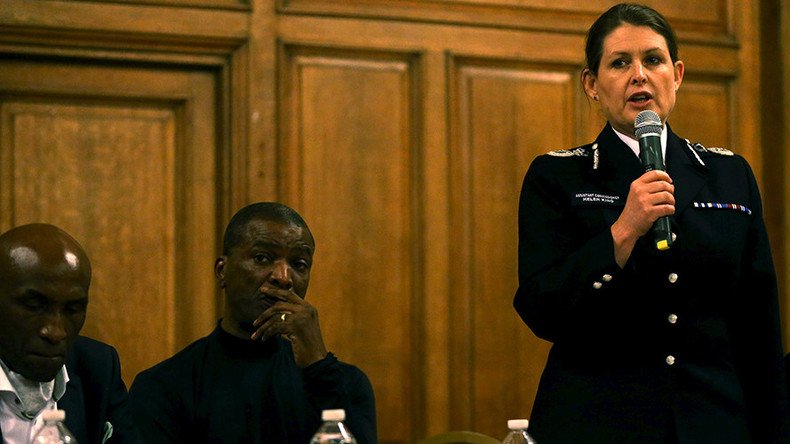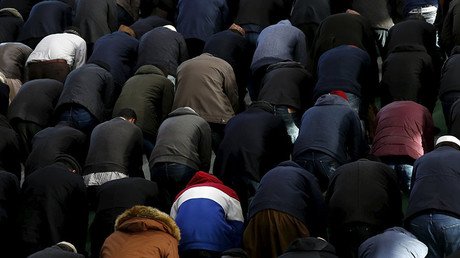London police have duty to explain killing of Jermaine Baker

By now many people will have heard of the recent shooting of 28-year-old Jermaine Baker on December 11th in Wood Green in North London, at the hands of the police.
Baker’s case is now just one of many, part of a disturbing history, revealing a fraught relationship between the police and the communities in London which they serve.
Baker and his family are from Tottenham, and this community especially, are all too familiar with police violence, with many high profile deaths in custody having taken place over the years within the area.
Young black men are at particular risk of being the recipients of police violence, and are disproportionally more likely to be stopped and searched, and incarcerated than white youths, despite being no more likely to commit crime. These are facts, irrefutable though they may be inconvenient for some, and furthermore, this is the historical backdrop and context which Jermaine Baker’s case is set against and which must not be ignored and must be taken into account. To not do so is to risk repeating mistakes of the past.
There are many similarities between Jermaine Baker’s case, and other instances of deaths in police custody, one of the most obvious being the killing of Mark Duggan which took place in August 2011, and which led to the London riots.
One of the most striking similarities has been in the conflicting nature of the statements from the police themselves following the killing, and also the way things have been presented in the media.
Just as when Mark Duggan was killed in 2011, the media have been quick to paint Baker as one of London’s most dangerous criminals.
One difference this time around however, with the reaction to Jermaine Baker’s case, is that the police have been forced to counter claims in the media that Baker was a hardened gangster.
The Attorney General, having been contacted by Baker family lawyer and Tottenham MP David Lammy in the wake of inaccurate claims about Baker, issued a note to the media warning them against making false allegations about him.
The next surprising development, following the death of Baker is the announcement that the officer who shot Baker had been suspended from duty, and then subsequently that the officer had been arrested.
It’s worth noting that the Metropolitan Police has emphasized this does not necessarily mean the officer will be charged. It’s also worth noting that with a long and checkered history of deaths in police custody, no officer in the UK has been jailed over a death in custody. Therefore, the fact an officer has now been arrested as part of the investigation is in itself remarkable.
One other key part of this case is the fact that some have claimed that Baker, who was a father of two, was asleep in a car at the time he was shot and killed.
The fact that the police will not confirm whether Baker was asleep and the fact that one of the officers involved has now been arrested is very troubling. It suggests the police may know much more than they are letting on, and also suggests a public relations damage limitation operation is under way. The police surely want to protect their own image as much as possible, and if they know that Baker was indeed asleep when shot, they also have a stake, in their eyes at least, in managing and preventing a repeat of the rage which led to the London riots repeating itself.
The implications of Baker being asleep when shot would be profound. We’ve seen instances in the past of police violence being caught on camera, and we’ve heard of people being shot and killed by the police despite being unarmed.
However, Baker being asleep when shot would surely hail a dangerous new precedent.
Following the death of Mark Duggan, and the uproar which followed, a verdict of ‘lawful killing’ was reached thus making it legal for police to essentially shoot to kill, irrespective of whatever the circumstances might be.

For communities where young black men dying at the hands of the state is sadly a lived reality, the ‘lawful killing’ court ruling was simply interpreted by them as the state legalizing open season on their communities. Who could blame them for viewing things in this light given the history of police violence suffered, without seeing an iota of justice?
If it is confirmed that Baker was asleep, and if following that no officer faces the dock, then the consequences will be disastrous. Expect more rioting if this happens.
How does the government expect communities to react and respond to police aggression, when increasingly, justice and the justice system are simply words and ideas, which have no grounding in reality for them? The reaction the government can expect will be a reaction they will be unable to control or subdue.
The riots sparked in Tottenham in 2011, expressed years of built up rage coupled with an acute sense of injustice. These insurrections are not the same as say organized protests highlighting the need for a change in government policy. Austerity has worsened since 2011 and tightened its grip, as has the endemic rage among many of our communities. Riots this time around would arguably be significantly worse than last time.
Following the death of Jermaine Baker and the arrest of the officer who fired the fatal shot, senior police officers have called on the prime minister for further protection and safeguarding. David Cameron has responded by calling for a review into the legal protection officers currently have. This perhaps signals an indication by the state that they anticipate further legal hot water in the future. Suffice to say though, legal support for the police must already be quite effective, as the long list of officers who avoid facing justice themselves shows.
The case of Jermaine Baker has also thrown into question the absolute necessity of having armed police units equipped with body cams at all times.
As well as acting like a black box in this instance, recording things as they happen to give the public more accountability, such cameras would also act as a deterrent to police intent on wrongdoing.
The public were promised several years ago, following the killing of Mark Duggan, that body cams would be fitted to police units. This hasn’t happened. It must happen. Pressure needs to be kept up to ensure this change takes place.
We’ll see how this case develops in the coming weeks and months, and we’ll see how the state further responds to increasing pressure from the public for justice.
The police may well redouble their efforts to protect themselves legally in the future. But this case threatens to lay bare and expose, the reality of injustice faced by many communities in Britain.
Deaths in custody and police violence are not a new issue. Real structural reform is needed both within the police and within the wider criminal justice system in order for everybody to be treated the same under the law. At a basic level this must start, with police officers, whose salaries after all are paid for with public money, knowing that they can no longer do what they like and behave with impunity.
Let’s hope that the arrest of the officer, who shot Baker, if indeed guilty, is the start of that process. The family of Baker and the community in Tottenham deserve nothing less.
It’s also ultimately in the interest of the state to implement reform within the police. Police community relations in London right now are like a pressure cooker, just waiting for the right catalyst to explode and for us to see a repeat of the riots of 2011.
Deaths in custody is one of the most serious issues in Britain, and the implications in tackling it head on are clear; to not do so is to risk repeating the London riots of 2011.
The statements, views and opinions expressed in this column are solely those of the author and do not necessarily represent those of RT.













